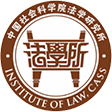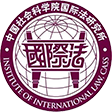 字号:
字号:小
中
大
A few months ago, the Glaxo-SmithKline (GSK) China bribery allegations sent shockwaves through the country’s pharmaceutical sector, stirring uproar both in China and overseas.
On July 11, 2013, the Ministry of Public Security in China officially opened investigations into the suspected economic crimes of some of GSK’s senior executives. The company was accused of bribing, in cash or other benefits, government officials, pharmaceutical associations and foundations, hospitals, and doctors to increase its sales and push up drug prices in China. The payments were funneled through travel agencies, among other channels.
Investigations show that GSK encouraged its employees to seek all possible means to increase sales, acquiescing to or even encouraging bribery. The funds, unsurprisingly, were provided by the company. Lured by a fortune in backhanders, certain doctors and hospitals degenerated into drug promoters, helping the pharmaceuticals giant expand sales by prescribing unnecessary, expensive drugs. Their actions not only seriously undermined the legitimate rights and interests of patients, but also sent China’s pharmaceutical market into turmoil, hindering the healthy development of the pharmaceutical industry.
As globalization deepens, China is becoming increasingly open and integrated into the world economy. In this process, multinationals have entered the Chinese market in increasing numbers, spurring and reshaping Chinese economy together with homegrown businesses. Most foreign multinationals in China are legally conscious and operate in compliance with the law. They have become an important component of China’s economy. However, recent commercial bribery scandals have shown that those involving multinationals in China are on the rise – certain foreign enterprises, it seems, are now more emboldened to circumvent the law here.
No market economy can tolerate commercial bribery, and such practices will be resolutely checked and cracked down upon. China is no exception. The Anti-unfair Competition Law promulgated in 1993 sets out clear provisions on prohibiting commercial bribery. Other laws have since laid the legal basis for handling such acts in China. It was under these premises and within a complete legal framework that China opened investigations into the GSK case and took relevant measures.
The GSK scandal, it transpires, is not the only one involving a pharmaceutical company bribing officials and doctors in China, but rather, the tip of the iceberg. Eli Lilly and Pfizer, among others, were both embroiled in bribery scandals in China. The commerce and industry watchdogs in several major Chinese cities, including Shanghai, Beijing, Nanjing and Wuhan, have recently rolled out investigations into big players. They included Roche, AstraZeneca and Bayer, all international magnates in the trade. It seems that opening up a drug market through bribery has in some sense been recognized as an unspoken rule in China’s pharmaceutical industry.
Unfortunately, and for too long, the Chinese government adopted a lenient stance on commercial bribers, who were often spared severe punishment for their actions. This “soft touch” led them and the public to believe that the government did not take the issue seriously. Risk takers, when it cost little to break the law, and knowing they could walk away in anonymity after wrongdoing, were bound to enter the freewheel competition of law-breaching. Now their days of plenty are numbered.
The recent investigation into the bribery cases of pharmaceutical multinationals in China shows that the government is proactively addressing violations of law and acts of economic crime in an effort to maintain the vigor of a market economy. It ensures that these companies operate in compliance with Chinese law and sends out a clear message to other multinationals doing business here.
Commercial bribery not only undermines the rule of law and fair trade, but also erodes a country’s economy. The GSK investigation was the first bold move against commercial bribery by the new generation of Chinese leadership. Multinationals in China need to understand that the Chinese government’s campaign against commercial bribery is not intended to suppress foreign capital but rather is a rigorous effort to create a healthy and orderly market through fair competition.
Multinationals promoting business through bribery is nothing new; the concern is that they have moved their corruption battlefront to developing countries, especially emerging economies like China, deterred by the stricter laws in developed countries. China is currently in transition, which means possible loopholes in its laws and systems. Vying competitors can more easily take advantage of institutional vulnerabilities and bribe their way through to fulfilling their overseas expansion ambitions.
The heady pursuit of profit is one reason why some established international brands take the legal risk of offering bribes in China. But such deeds cannot germinate and proliferate without a supportive, or at least tolerant, environment. Therefore, to eradicate this vice, we must simultaneously punish corruption and promote reforms.
On the one hand, the government needs to improve laws and regulations on commercial bribery and ensure their enforcement; on the other, it should press ahead with systemic reforms in the government and economic sectors, transforming the government’s functions, and giving full play to the role of the market. In conclusion, the building of a sound legal framework is central to establishing and maintaining the authority of law. Any business, homegrown or foreign, must answer to the law and the law only.
(原文载于China Today第10期/网址:http://www.chinatoday.com.cn/english/economy/2013-09/25/content_569718.htm)



